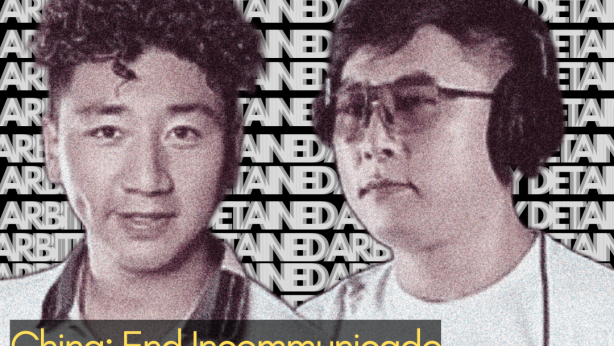TCHRD Statement on the Systematic Torture and Abuse of Tibetans in Tibet
On the occasion of the International Day in Support of Victims of Torture, the Tibetan Centre for Human Rights and Democracy (TCHRD) honours the enduring courage of Tibetan political prisoners, environmental defenders, and human rights advocates who have suffered torture and inhumane treatment under the Chinese government’s oppressive policies in Tibet.
This year’s observance coincides with the long-overdue submission by China of its sixth periodic report to the UN Committee Against Torture submitted in February 2025, more than five years past its due date. While the report highlights a series of legal and institutional reforms aimed at preventing torture, it notably fails to acknowledge the situation in Tibet, where torture remains a systematic and state-sanctioned practice.
Despite China’s stated commitments to legal safeguards, including mandatory video recording of interrogations, exclusion of confessions obtained under torture, and enhanced prosecutorial oversight, Tibet remains a legal black hole, where these protections are rarely applied, if at all. Detainees in Tibet continue to face prolonged incommunicado detention, often in undisclosed facilities; coerced confessions obtained through physical and psychological abuse; denial of legal counsel and family contact, especially during initial detention; closed trials and opaque sentencing, frequently based on vague charges like “endangering state security” and “leaking state secrets.”
China’s report claims the establishment of more than 3,000 standardized law enforcement centres to promote humane treatment of detainees. However, in Tibet, such centres have been repeatedly linked to enforced disappearances, forced ideological indoctrination, and routine torture. These practices directly contradict the report’s assertions of fairness, transparency, and respect for minority rights.
TCHRD continues to document severe rights violations in Tibet. The deaths in custody of prominent figures like Tulku Tenzin Delek Rinpoche, Lhamo, and most recently Tulku HungkarDorjee Rinpoche are stark reminders of the impunity that prevails. These individuals, detained for nonviolent activities such as community leadership, religious expression, and language preservation, were all subjected to torture and mistreatment that ultimately led to their untimely deaths.
Torture in Tibet is not just a method of punishment, it is a deliberate approach to undermine Tibetan identity, silence dissent, and instil fear across society. TCHRD therefore calls on the international community to advocate for the immediate and unconditional release of all Tibetan political prisoners and demand unfettered access to Tibet for UN Special Rapporteurs and international journalists.
Torture is a grave crime under international law. The Chinese government’s failure to address torture in Tibet not only violates its treaty obligations but also reveals the depth of systemic repression faced by the Tibetan people.


